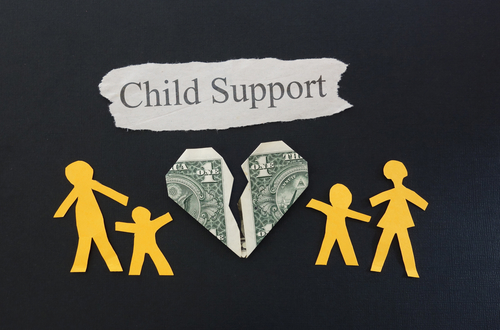
What Is Divorce By A Separation Agreement?
You do not currently have a featured image set for this post. To set your featured image, click on the circular Meta View button and set your image in the box on the bottom right.
When a marriage relationship comes to an end, the parties must untangle their lives
and begin the process of living apart from one another. Often, emotions,
children, and excessive debt can make it a complicated and contentious divorce
process. However, sometimes the separation is amicable and by mutual agreement.
No matter how complex the issues may be, there are often ways that married individuals can find agreement on how to separate their lives, belongings, and interests. If everything can be agreed upon, the parties can enter into a Separation Agreement. This document is a contract that explains how the parties will separate everything they have together. If this situation involves children, the Separation Agreement will contain provisions about how the parties will continue to parent their children apart or will often be accompanied by a Shared Parenting Plan.
The Separation Agreement
The parties can file their Separation Agreement with the Common Pleas Court and petition the court for a dissolution. The dissolution process takes less time and is less expensive (in terms of legal fees) than filing for divorce. However, the parties must be in complete agreement and must be willing to come to court for a brief hearing, so the court can approve the agreement.
If the parties cannot come to a complete agreement, the individuals often feel “in limbo” with no set guidance on how to live apart, and one party will usually end up filing for divorce. This does not mean that the parties cannot later come to an agreement and settle the matter before it would be presented to a judge or magistrate to decide. The parties have to agree on everything, including why they want a divorce. Usually the grounds are incompatibility or living separate and apart for over one year. (You do not need to prove that your spouse is at fault to get a divorce in Ohio.)
After a divorce is filed, it usually takes time to understand what assets, debts, and other issues need to be considered to finalize the divorce. When divorce attorneys are involved, they will often know best how the court will view the issues presented and what is “fair and equitable.” Settlement proposals may be exchanged and if the parties can agree, they can notify the Court that they would like to have an Uncontested Divorce Hearing, which is similar to the hearing in a dissolution.
Whether filed as a dissolution with a Separation Agreement, or as a divorce which ultimately settles, the court must hold a hearing to take some testimony from the parties. These hearings are relatively short and therefore easier for the court schedule. The court needs to know that the parties are in agreement about why they want the divorce and how they will divide property and debts. When children are involved, the court must also hear that the agreement furthers the children’s best interest.
Reviewing The Separation Agreement
When parties to a divorce or dissolution present an agreement, the court generally will approve it if it seems fair and equitable to both parties. The court will not wade through the details or perform calculations to be assured that the agreement is fair. Courts often take the view that the parties know best the value of their assets, what belongings each has, and the various obligations that are coming out of the marriage. So, even if you have an agreement, it is advisable to have a divorce attorney who works in the area of domestic relations to review it.
For example, you may be in agreement that your spouse can keep the home you purchased together. However, if you used your pre-marital savings to make the down payment, you may be entitled to a greater portion of the equity. Similarly, if you and your spouse are sharing custody of your children and you agree that you don’t want any child support, it may be very difficult to change this as the children get older (and more expensive) if you don’t have the proper language in the order. A divorce attorney can help you consider things that you might not be thinking about that will help keep you out of court later.
If you have questions about the divorce or dissolution process, speak with a skilled divorce attorney to schedule an initial consultation. We practice family law in Ross, Pike, Pickaway, Jackson, and surrounding counties.



